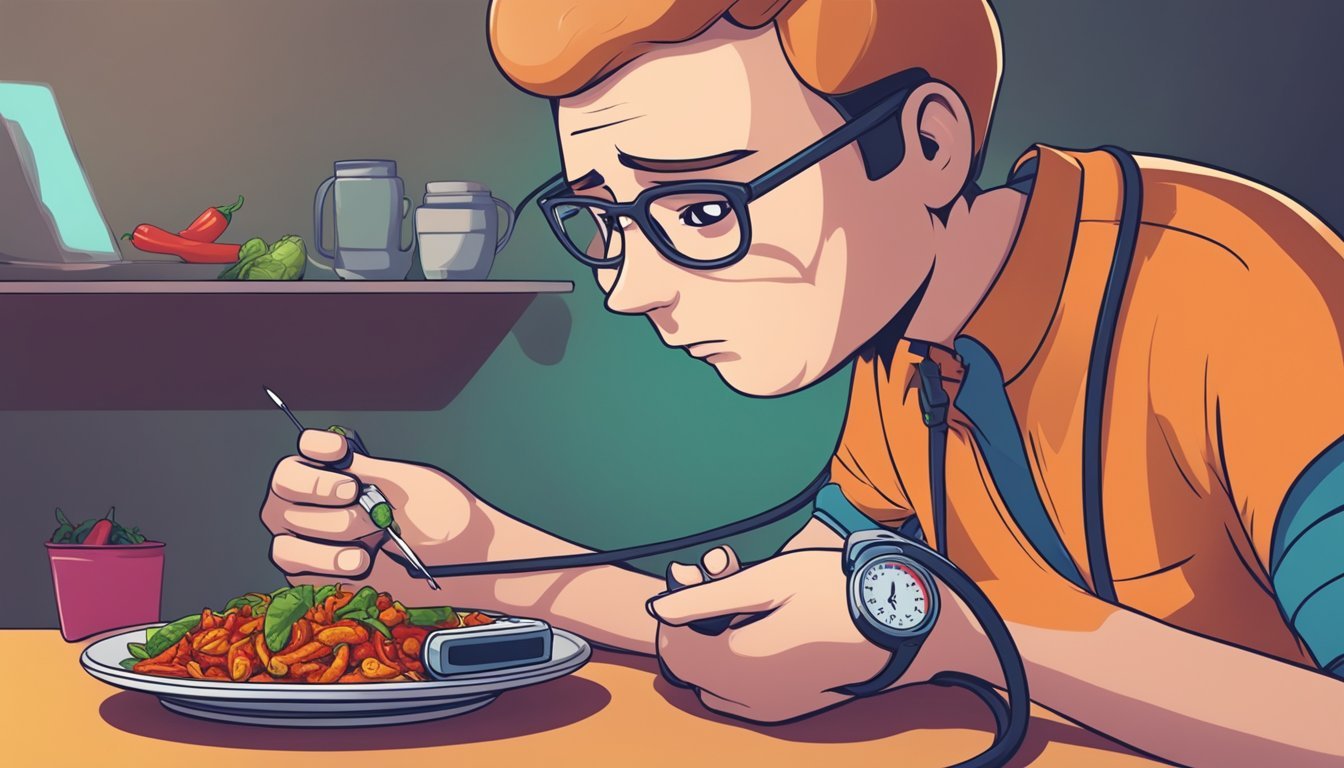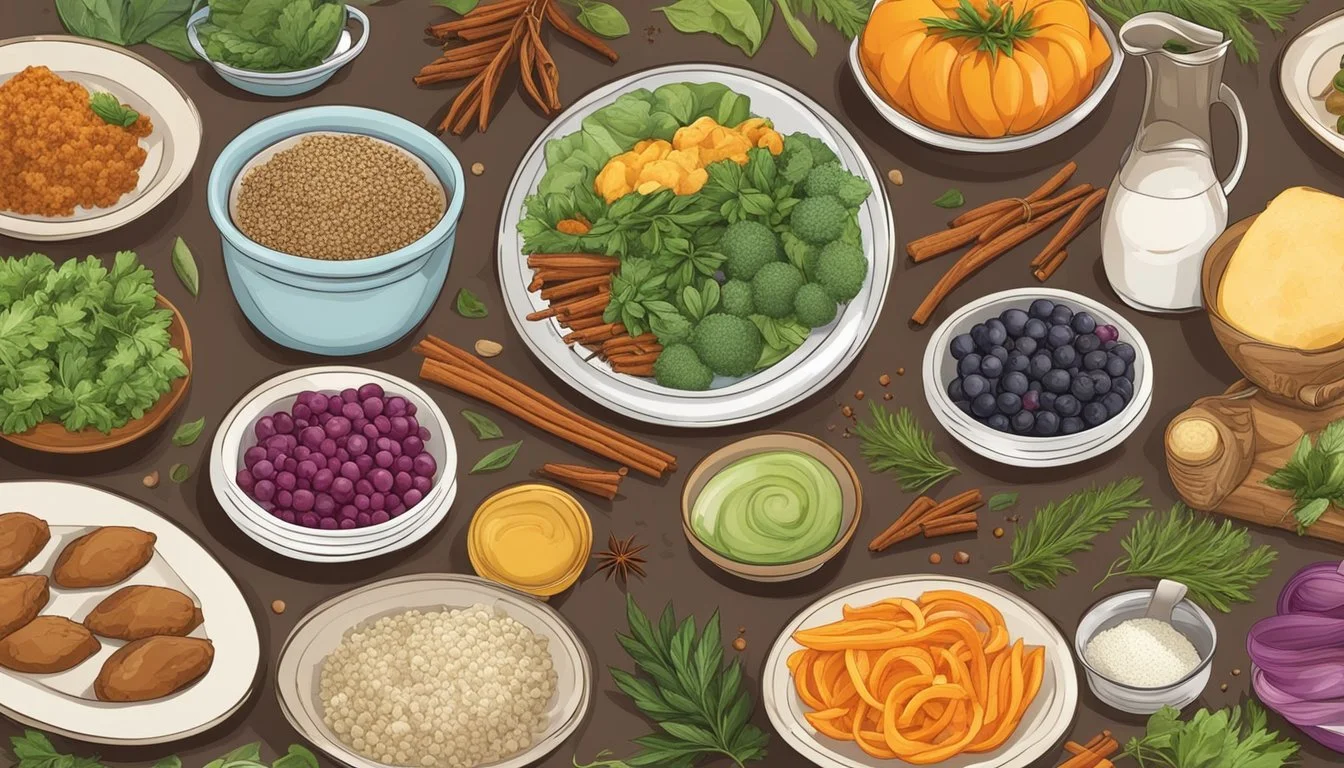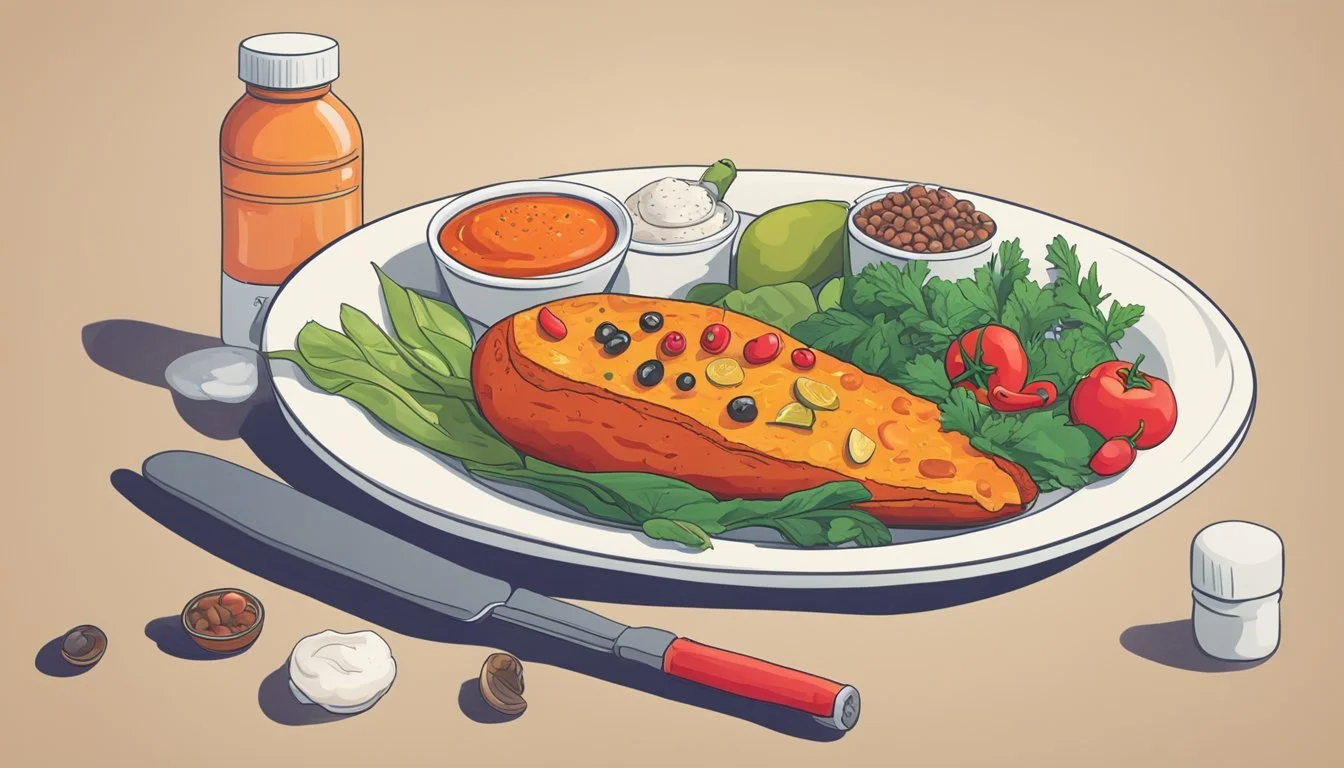Is It Okay to Eat Spicy Foods with Hypertension?
Understanding the Effects
Hypertension, or high blood pressure, is a common health concern for many adults worldwide. It serves as a key risk factor for cardiovascular diseases and requires careful management, which often includes dietary modifications. When it comes to diet, the role of spicy foods in the management of high blood pressure has been a topic of interest and debate among healthcare professionals and those living with the condition.
The consumption of spicy foods often elicits a concern for individuals with hypertension due to the potential for these foods to have stimulating effects on the body. However, some research suggests that compounds found in chili peppers, such as capsaicin, might offer some benefits in reducing blood pressure. This counterintuitive notion indicates that the relationship between spicy foods and hypertension might not be as straightforward as previously thought.
Dietary habits play a significant role in either exacerbating or controlling high blood pressure. Considering this, one must evaluate the evidence and advice from health experts to understand if it is acceptable to include spicy foods in a diet designed to manage hypertension. Each individual may respond differently to dietary components, so personal health history and current condition should guide food choices, especially when trying to manage health risks associated with elevated blood pressure.
Understanding Hypertension
In discussing the appropriateness of spicy foods for those with hypertension, it is first crucial to understand the condition itself. This section examines what hypertension means, its risk factors, and the potential health complications it can cause if left unmanaged.
Defining High Blood Pressure
High blood pressure, or hypertension, occurs when the force of blood against the artery walls is consistently too high. Blood pressure readings are given as two numbers: systolic blood pressure—the pressure during a heartbeat, and diastolic blood pressure—the pressure between heartbeats. A normal blood pressure level is typically below 120/80 mmHg. Hypertension is often diagnosed when readings consistently exceed 130/80 mmHg.
Risk Factors for Hypertension
Several factors can increase an individual's risk of developing hypertension. These include:
Genetic predisposition: Family history can play a significant role.
Age: The risk increases as one gets older.
Lifestyle choices: Such as a high-salt diet, excessive alcohol intake, and lack of physical activity.
Obesity: Excess body weight can lead to higher blood pressure.
Stress: Chronic stress may contribute to an increase in blood pressure.
Complications from High Blood Pressure
Untreated hypertension can lead to serious health issues, including:
Heart disease: High blood pressure can cause hardening and thickening of the arteries (atherosclerosis), which can lead to heart attack.
Stroke: The increased pressure can cause blood vessels in the brain to burst or clog more easily.
Kidney disease: Hypertension can damage the kidneys, leading to kidney failure.
It is essential for individuals to manage their blood pressure to avoid these cardiovascular and renal complications.
Dietary Influences on Blood Pressure
Diet plays a pivotal role in managing hypertension, particularly through the intake of certain nutrients and compounds. This section explores the impact of sodium and salt, the role of potassium, and the effects of added sugars and fats on blood pressure.
Impact of Sodium and Salt
High sodium intake, commonly through salt (sodium chloride), can raise blood pressure. The American Heart Association recommends no more than 2,300 milligrams of sodium per day, moving toward an ideal limit of 1,500 mg for most adults. Key sources of sodium include processed foods, restaurant meals, and some seasonings. It is essential for individuals with hypertension to read food labels and choose low-sodium options where possible.
Role of Potassium
Potassium helps to balance the amount of sodium in cells, which aids in blood pressure regulation. Foods rich in potassium like bananas, oranges, spinach, and potatoes can be beneficial. The recommended dietary intake for potassium is 3,500–4,700 mg per day. Individuals should aim for a diet that includes sufficient amounts of potassium, which may mitigate the hypertensive effects of sodium.
Effects of Added Sugars and Fats
Diets high in added sugars and saturated fats can lead to weight gain and increased cholesterol levels, both risk factors for hypertension. Foods to be mindful of include sugary drinks, baked goods, and fried foods. Instead, one should focus on a diet incorporating healthy fats such as those found in nuts and avocados. Additionally, a high intake of fiber from whole grains, fruits, and vegetables can help in managing blood pressure and cholesterol levels.
Specific Foods and Nutrients to Consider
When managing hypertension, one must pay close attention to their diet, focusing on foods that support cardiovascular health without elevating blood pressure.
Whole Grains and Fiber-Rich Foods
Whole grains are a fundamental part of a heart-healthy diet. They are a rich source of fiber, which can help in lowering blood pressure. Incorporating oats, brown rice, and barley not only provides essential nutrients but also aids in digestion and metabolism.
Oats: A good source of soluble fiber, beneficial for heart health.
Barley: Provides a unique combination of fiber, vitamins, and minerals.
Importance of Fruits and Vegetables
Fruits and vegetables are packed with potassium, magnesium, and fiber, crucial nutrients needed to regulate blood pressure. They should form a sizable portion of the diet. Spinach, bananas, and oranges are especially potent in balancing hypertension.
Leafy Greens: Rich in potassium, magnesium, and fiber.
Citrus Fruits: Offer a healthy dose of vitamin C and potassium.
Including Fish and Lean Meats
Fish, such as salmon and mackerel, are excellent sources of omega-3 fatty acids that benefit heart health. They should be included in one's diet regularly. Lean meats like chicken and turkey provide protein without excessive saturated fat.
Salmon: High in omega-3 fatty acids.
Turkey: A lean protein choice with less saturated fat than red meat.
Dairy, Nuts, and Seeds
Low-fat dairy products, nuts, and seeds contain calcium, magnesium, and potassium, which aid in blood pressure control. Foods like yogurt and almonds can be beneficial in moderate amounts.
Yogurt: Offers calcium and can support gut health.
Almonds and Sunflower Seeds: Good sources of healthy fats, magnesium, and more.
By focusing on these specific foods and nutrients, individuals with hypertension can create a diet that supports their overall health and may help to manage their blood pressure more effectively.
The Influence of Spicy Foods on Hypertension
The effects of spicy food consumption on hypertension involve complex interactions within the body, particularly due to the presence of compounds like capsaicin.
Can Spicy Foods Affect Blood Pressure?
Research indicates that the consumption of spicy foods can affect blood pressure, though findings are mixed. Some studies have suggested that there may be an inverse relationship between spicy food intake and hypertension. Spices, particularly those with capsaicin, like chili peppers, could potentially lead to a lowering of blood pressure. Capsaicin is known to activate certain receptors that are linked to vascular health.
Analyzing Capsaicin's Role
Capsaicin, found in chili and other peppers, is the substance responsible for the heat sensation in spicy foods. It has been studied for its effect on various cardiovascular risk factors. Capsaicin may reduce vascular lipid accumulation and enhancing endothelium-dependent vasorelaxation, which could help in the prevention of arterial hypertension. Furthermore, capsaicin has been associated with increased urinary sodium excretion, another factor that may influence blood pressure regulation.
Lifestyle and Dietary Approaches to Stop Hypertension (DASH)
Managing hypertension requires a multifaceted approach that combines dietary adjustments with lifestyle changes. The DASH diet is an integral part of this strategy, promoting heart-healthy foods that aid in lowering blood pressure.
Principles of DASH Diet
The DASH diet emphasizes the consumption of a variety of nutrients beneficial for heart health and blood pressure management. Key components of this diet include:
Vegetables and fruits: Rich sources of potassium, magnesium, and fiber.
Whole grains: Integral for providing energy and fiber.
Low-fat or fat-free dairy: Supplies calcium, protein, and vitamin D without excessive saturated fat.
Protein sources: Includes lean meats, poultry, fish, beans, nuts, and seeds.
Limited sodium: Reducing salt intake to lower blood pressure levels.
A balanced diet on the DASH program typically means:
Increasing plant-based foods
Consuming nuts, seeds, and legumes 4-5 times per week
Limiting sweets and sugary beverages
Choosing fats that are heart-healthy, such as olive oil, over saturated fats
Lifestyle Changes for Managing Blood Pressure
Alongside the DASH diet, integrating certain lifestyle adaptations is crucial for individuals with hypertension:
Exercise regularly: Engaging in physical activity can help lower blood pressure and maintain a healthy weight.
Limit alcohol consumption: Individuals should moderate their drinking as alcohol can raise blood pressure.
Minimize caffeine intake: Though the impact varies, some people may experience a short-term increase in blood pressure with caffeine.
Stress management: Chronic stress may contribute to higher blood pressure.
By combining these lifestyle changes with the heart-healthy DASH diet, individuals can work towards effectively managing hypertension.
Managing Hypertension with Medication and Diet
Effective management of hypertension typically involves the use of blood pressure medications alongside dietary adjustments. Each plays a critical role in maintaining optimal blood pressure levels.
When Medication is Necessary
For individuals diagnosed with hypertension, doctors often prescribe medications to help control blood pressure. These medications may include thiazide diuretics, ACE inhibitors, or calcium channel blockers, which work by either slowing the heart rate, dilating blood vessels, or increasing urine to decrease blood volume. It's crucial for patients to adhere to the prescribed medication regimen and to regularly monitor their blood pressure to ensure the medication's efficacy.
Integrating Diet with Hypertension Medication
Integrating a diet tailored for hypertension can significantly enhance the effectiveness of blood pressure medication. Individuals should incorporate foods rich in potassium, magnesium, and fiber, as these nutrients are known to aid in blood pressure control:
Potassium: Helps balance levels of sodium and eases tension in the blood vessel walls.
Foods to Include: Bananas, avocados, beans, and dark leafy greens.
Magnesium: Helps regulate blood pressure by relaxing blood vessels.
Foods to Include: Seeds, nuts, whole grains, and green leafy vegetables.
Fiber: Supports heart health and can improve blood pressure.
Foods to Include: Fruits, vegetables, and whole grains.
In conjunction with these nutrients, it is advisable to reduce sodium intake, as excessive sodium can lead to water retention and increased blood pressure. Patients should choose fresh, unprocessed foods over canned or processed ones, which are often high in sodium. By working closely with healthcare providers, individuals with hypertension can develop an effective medication and diet plan to manage their condition.
Conclusion
Research and health organizations like the American Heart Association indicate that diet plays a crucial role in managing hypertension. For individuals diagnosed with high blood pressure, careful consideration of dietary choices is paramount to reduce risks of complications such as heart attacks and strokes.
Spicy foods have been viewed divergently; some studies suggest moderate consumption might benefit those with hypertension, perhaps due to compounds like capsaicin. However, a connection has been posited between a high intake of spicy foods and an increase in the likelihood of obesity and adverse blood lipid profiles. Obesity is a known risk factor for hypertension and related conditions, including diabetes.
Public health guidelines typically recommend a balanced diet focusing on fruits, vegetables, whole grains, and lean proteins while moderating salt and sugar intake. For those with hypertension, the incorporation of spicy foods should be approached with awareness and moderation:
Monitor: Keep track of blood pressure levels when introducing spicy foods into the diet.
Consult: Seek advice from healthcare professionals for personalized dietary recommendations.
Balance: Ensure overall dietary habits align with heart-healthy practices, such as the DASH or Mediterranean diets.
Each individual's response to dietary components like spicy foods may vary. Therefore, one must prioritize a comprehensive approach to diet and lifestyle, integrating professional medical advice and current research to support their cardiovascular health.





